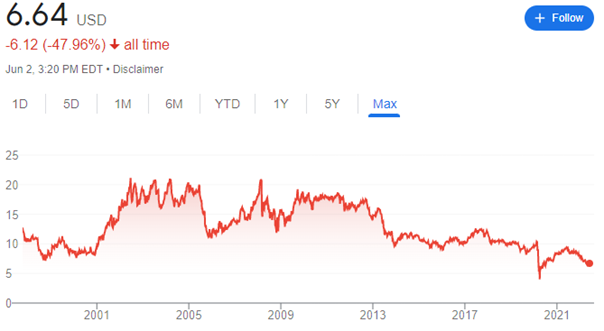Part 3: Real Estate Investment Trusts (REITs)
This article is the third in a series looking at the pros and cons of various income-producing vehicles. But before we dive in, we’ll begin with an important caveat: Here at Pure Financial Advisors, we believe that for most individuals, the income alternatives we’ll be discussing are best suited as complements rather than substitutes for high-quality bonds. With that warning out of the way, let’s start by looking at our third income alternative: real estate investment trusts (REITs).
In part two of this series, we looked at physical rental real estate, but now we’re shifting attention to owning real estate securities. There are benefits and drawbacks to real estate in general, and if you decide to own real estate, the next step will be to determine whether to invest in physical real estate or REITs. As we’ll see, there are pros and cons to both approaches.
Investing in REITs: The Good:
- Potential for income: to qualify as a REIT, a company needs to distribute 90% of its taxable income back to shareholders. That means that in many environments, REITs can be one of the higher-yielding asset classes available
- Potential for price appreciation: in addition to income, REITs have the potential to generate price appreciation, which can make for an attractive total return from your investment
- Diversification: although it is sensitive to the economic cycle, real estate does not move in perfect lockstep with stocks or bonds, which means it can provide some portfolio diversification
- Not labor-intensive: maintaining rental properties can be labor-intensive and time-consuming, but REIT investing is no different than buying and holding any other stock. In other words, no tenants, toilets, or termites.
- Illiquidity: one of the drawbacks of physical real estate is that liquidating it can be a slow and expensive process. With publicly-traded REITs, investors can turn their investment into cash with the click of a button.
- Broad swath of real estate: because of the price tag on office buildings, large apartment complexes, and other commercial real estate, most individuals investing in physical real estate wind up buying single-family homes or small apartments. Investing through a REIT allows for diversification into a broader array of real estate, since the REIT pools the resources of many individuals.
Investing in REITs: The Bad:
- Mark-to-market: one of the benefits of owning physical real estate is that its value isn’t adjusted every day, and you don’t have to constantly look at a statement showing gains and losses. Because prices aren’t “marked-to-market”, it can be easier for investors to ignore price fluctuations and take a long-term view. Publicly-traded REITs offer many benefits over physical real estate, but because they trade like any other stock, you’ll be subjected to market gyrations that could make it difficult to hold on. This is particularly true because REITs have been a volatile asset class. In fact, one analysis1 of ten asset classes over the fifteen-year period ended December 2021 showed that REITs displayed the highest volatility over that time frame, exceeding even small company and emerging market stocks.
- Less leverage: another drawback of REITs, at least when compared to physical real estate, is that you can’t use the same type of leverage. Whereas a rental property purchase might only require a down payment of twenty percent or less, you can’t take out a mortgage to buy REITs. As with most stocks, you might be able to use margin on your account, but that is generally limited to fifty percent of the purchase price. Importantly, leverage can magnify both gains and losses. While using mortgages for “leverage” is common in the real estate world, we generally don’t advocate the use of margin when buying stocks of any type, including REITs.
Investing in REITs: The Ugly:
- And then there are non-traded REITs: unlike publicly-traded REITs which are listed on organized stock exchanges and can be bought and sold like any other stock, non-traded REITs do not trade on an exchange, and often can’t be sold for an extended period. Many non-traded REITs are however registered with the SEC, and these must provide periodic financial disclosures. There are also private REITs that neither list on an exchange nor register with the SEC, but these are generally only available to high-net-worth investors.
- As with any asset class, there are good and bad investments here, but you’ll want to be hyper-aware of what you are buying. Many non-traded REITs carry large upfront fees, which according to Investopedia2 can be as high as 15%. Non-traded REITs can also be quite illiquid. Generally, the REIT will have a defined time period for its investment at the end of which it will either liquidate or list on a public exchange. Sometimes there may also be opportunities to exit your investment early, but there is no guarantee of this. As such, you’ll want to make sure any money you invest in non-traded REITs is really money you won’t need on short notice, because even if you do have the opportunity to sell prior to the fund’s liquidation, you might have to do so at a discount to the fund’s true value, which can hurt your investment performance.
What About Mortgage REITs?
The REITs we have been discussing so far own properties of some type, but there is another type of REIT that owns mortgages on properties, rather than the properties themselves. These “mortgage REITs” can sometimes offer attractive yields, making them appealing to income-oriented investors. But there are some drawbacks as well. Chief among these is that mortgage REITs can be very sensitive to changes in interest rates. That is because these companies profit from the differential between their cost of capital and the income on the mortgages they purchase. When interest rates move unexpectedly, this differential can narrow or even disappear, resulting in losses. Furthermore, mortgage REITs are also subject to the risk borrowers cannot repay their mortgages, or conversely, that borrowers refinance into lower-rate mortgages. Because of these risks, mortgage REITs can be very volatile. For instance, here is a 25-year stock price chart for Annaly Capital Management, one of the larger mortgage REITs:

As you can see, large drops, as well as large gains, have been common. Because of this volatility, mortgage REITs should be used sparingly, if at all, despite the income they sometimes provide.
So, How Should You Use REITs?
As with any investment, what’s important with REITs isn’t just whether you use them, but also what percentage of your overall mix does it comprise? Opinions on this vary widely, but here at Pure, we are somewhere in the middle of that debate. With many clients, we use publicly-traded REITs for the diversification and income they provide, but we are also careful to size positions appropriately.
Now that you’ve learned a bit more about real estate investment trusts, check back soon for the next installment in this series on income alternatives.
Data as of June 2022
Intended for educational purposes only and are not intended as individualized advice or a guarantee that you will achieve a desired result. Before implementing any strategies discussed you are encouraged to seek tax or legal advice from an independent professional. References in this material to any specific security do not constitute or imply endorsement, recommendation, or favoring by Pure Financial Advisors, LLC nor its employees.
Sources:
-
Slide 61. chrome-extension://efaidnbmnnnibpcajpcglclefindmkaj/https://am.jpmorgan.com/content/dam/jpm-am-aem/global/en/insights/market-insights/guide-to-the-markets/mi-guide-to-the-markets-us.pdf
-
https://www.investopedia.com/terms/n/non-traded-reit.asp#:~:text=A%20non%2Dtraded%20REIT%20is,for%20long%20periods%20of%20time.










